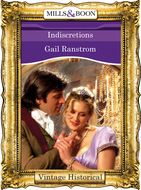Książki nie można pobrać jako pliku, ale można ją czytać w naszej aplikacji lub online na stronie.
Czytaj książkę: «Regency Christmas Wishes»
Three Regency tales of festive wishes come true...
CAPTAIN GREY’S CHRISTMAS PROPOSAL by Carla Kelly
Captain Grey had been fighting malarial fever in Savannah when he met Theodora Winnings. He proposed by letter—but it’s taken ten years to receive her reply. The answer was “yes!”—but is she still free to become his Christmas bride?
HER CHRISTMAS TEMPTATION by Christine Merrill
Faith Strickland’s plan to marry to save her family backfires when notorious rake James Leggett sets out to break her unhappy engagement. He’ll storm her Twelfth Night celebrations and scorch her into surrender!
AWAKENING HIS SLEEPING BEAUTY by Janice Preston
Lonely Diana Fleming knows handsome knights don’t really exist. But can a festive kiss from the man she loves reawaken her frozen heart?
Praise for the authors of
Regency Christmas Wishes
CARLA KELLY
‘Kelly is a master at emotional, uplifting romances.’
—RT Book Reviews on The Wedding Ring Quest
CHRISTINE MERRILL
‘Merrill pens another winner.’
—RT Book Reviews on The Wedding Game
JANICE PRESTON
‘Readers will enjoy this well-written tale packed with authentic characters and a tender lover story.’
—RT Book Reviews on The Governess’s Secret Baby
CARLA KELLY started writing Regency romances because of her interest in the Napoleonic Wars. She enjoys writing about warfare at sea and the ordinary people of the British Isles rather than lords and ladies. In her spare time she reads British crime fiction and history—particularly books about the US Indian Wars. Carla lives in Utah and is a former park ranger and double RITA® Award and Spur Award winner. She has five children and four grandchildren.
CHRISTINE MERRILL lives on a farm in Wisconsin, USA, with her husband, two sons and too many pets—all of whom would like her to get off the computer so they can check their email. She has worked by turns in theatre costuming and as a librarian. Writing historical romance combines her love of good stories and fancy dress with her ability to stare out of the window and make stuff up.
JANICE PRESTON grew up in Wembley, North London, with a love of reading, writing stories and animals. In the past she has worked as a farmer, a police call-handler and a university administrator. She now lives in the West Midlands with her husband and two cats, and has a parttime job as a weight management counsellor—vainly trying to control her own weight despite her love of chocolate!
Regency Christmas Wishes
Captain Grey’s Christmas Proposal
Carla Kelly
Her Christmas Temptation
Christine Merrill
Awakening His Sleeping Beauty
Janice Preston

MILLS & BOON
Before you start reading, why not sign up?
Thank you for downloading this Mills & Boon book. If you want to hear about exclusive discounts, special offers and competitions, sign up to our email newsletter today!
Or simply visit
Mills & Boon emails are completely free to receive and you can unsubscribe at any time via the link in any email we send you.
Table of Contents
Cover
Back Cover Text
Praise
About the Authors
Title Page
Captain Grey’s Christmas Proposal
Dedication
Dear Reader
Prologue
Chapter One
Chapter Two
Chapter Three
Chapter Four
Chapter Five
Chapter Six
Chapter Seven
Chapter Eight
Chapter Nine
Chapter Ten
Chapter Eleven
Chapter Twelve
Chapter Thirteen
Her Christmas Temptation
Dedication
Dear Reader
Chapter One
Chapter Two
Chapter Three
Chapter Four
Chapter Five
Chapter Six
Chapter Seven
Chapter Eight
Chapter Nine
Chapter Ten
Chapter Eleven
Awakening His Sleeping Beauty
Dedication
Dear Reader
Chapter One
Chapter Two
Chapter Three
Chapter Four
Chapter Five
Chapter Six
Chapter Seven
Chapter Eight
Chapter Nine
Chapter Ten
Chapter Eleven
Extract
Copyright
Captain Grey’s Christmas Proposal
Carla Kelly
To all who believe in the magic of Christmas
Dear Reader,
All my life I’ve noticed that the Christmas season is a time when people everywhere seem to become a little better, perform kindly deeds, think of others more and act upon good promptings. It’s almost as though Christmas gives us permission—as if we needed it—to bring out our better natures and the better natures of those around us.
We become more susceptible to the possibility that glad tidings of great joy can become a reality. Maybe we’re more willing to believe in impossible things because at Christmas all things feel possible.
In that vein, I bring you the whimsical tale of a post captain in the Royal Navy—a careful man swept into an adventure made possible by the receipt of a years-old letter that went astray. The Peace of Amiens (1802–1803) becomes a window of opportunity that takes him from Plymouth, England, to Savannah, Georgia, in the new country of the United States—a place he remembers well from his childhood and has never quite forgotten.
There’s a touch of magic, too…or maybe it’s more than magic. Maybe it’s the grace that can shower down upon us all if we’re willing to let the spirit of Christmas and St Nicholas step in and make things right.
Reader, whatever your faith or creed, I invite you to consider the possibilities of this season of wonder.
Carla Kelly
Prologue
This wasn’t a story shared widely. After some thought and a few laughs, New Bedford shipbuilder James Grey and his wife, Theodora, decided to tell their little ones this odd Christmas tale of how they’d met, or re-met, after years apart. They thought it wise to tell it before those same children reached maturity and no longer set much store by St Nicholas. Later, if more adult scepticism took over—well, that was their worry.
It was Christmas story to tell around the fireplace, drinking Papa’s wassail and gorging on Mama’s pecans nestled in cream and caramelized sugar she called pralines. None of the children’s New Bedford friends ate pralines at Christmas, even though many of them had seafaring fathers who travelled the world.
None of their friends had a mother like Mrs Grey, or for that matter, a father like James Grey. If their parents’ origins were shrouded in mystery, everyone in New Bedford appreciated the solidity of Russell and Grey Shipworks, whose yards employed many craftsmen at good wages. More quietly whispered about was the boundless charity of Mrs Grey, who assisted slaves to freedom in Canada, or helped free men and women of colour find work in New England.
From the first, a deckhand out of Savannah, to the latest, a young couple fleeing Mississippi and a brutal owner named Tullidge, she and her network of volunteers provided food, lodging, employment and hope.
She was a woman of great beauty, with the soft accent and leisurely sentences heard in the South of the still new United States. James Grey spoke with a curious accent that placed him not quite in Massachusetts, but not quite in England, either. He had a mariner’s wind-wrinkled face, and the ships he and his partner built were sound and true. That James adored his lovely wife was obvious to all. That the feeling was mutual was equally evident.
Something about the Christmas season seemed to reinforce this tenacious bond even more. Their oldest friends had heard the pleasant story of how they met in a distant Southern city, after years apart. There always seemed to be more to the story than either party let on, but New Englanders were too polite to ask.
Chapter One
Plymouth, England—October 1st, 1802
‘Captain Grey, please excuse what happened. I found this under a box in my officer’s storeroom.’
Mrs Fillion held out a letter most tattered and mangled. James Grey set down his soup spoon and picked it up. He squinted to make out some sort of return address. Stoic he may be, but he couldn’t help his involuntary intake of breath to see a single word: Winnings.
‘What? How?’ was all he could manage as he held the delicate envelope as though it were a relic from an Etruscan tomb. Mrs Fillion, owner of The Drake, was kind enough to allow her Plymouth hotel to serve as an informal postal and collection station since the beginning of Napoleon’s war. He motioned her to sit down at his solitary table, wishing she didn’t appear so upset.
‘What happened was that I set a box with some poor dead officer’s personal effects on top of the letter, which I was saving for you,’ she said, apologising. ‘Unfortunately, I haven’t seen you in years.’
‘That’s because I’ve operated on the far side of the world for several voyages,’ he said. ‘Don’t let this trouble you.’ He stared at the envelope. ‘Any idea how long it might have been there?’ He found himself almost afraid to open such a fragile document.
He couldn’t help wincing when she said, ‘It’s been there since 1791, because the box I set on top of it had “1792” scribbled on the side.’ She sighed. ‘Eleven years, Captain. I hope it wasn’t something terribly important.’
Likely not. When he never heard from Theodora Winnings after he proposed by way of pen and paper, James Grey, a first lieutenant in 1791, understood a refusal as well as the next man. Since his career seemed to keep him on the far side of the world for much of that decade, he had felt a little foolish for proposing to sweet Teddy Winnings in the first place. Then he dismissed the matter, except when he stood a watch, the perfect time to reflect on so much charm, goodwill and charity in a lovely frame. He stood a lot of watches. Still, Mrs Fillion needed to be jollied.
‘I wouldn’t worry, Mrs Fillion,’ he said. ‘I was a brand new first luff and I proposed to a fetching young thing in Charleston, South Carolina. Did it by letter, so you see how callow I was.’ He laughed, and thought it sounded genuine.
Mrs Fillion smiled, which relieved him. ‘Captain, would you be brave enough to propose in person now, providing the right fetching young thing happens along?’
‘Unlikely. I’m a ripe thirty-seven, and serve in a dangerous profession. Why inflict that on a woman?’
‘You underrate females, Captain,’ Mrs Fillion said.
‘I have long been fortune’s fool.’ He picked up his soup spoon again, giving Mrs Fillion liberty to continue circulating among her other guests.
The dining room was less busy, mainly because of the Treaty of Amiens, which meant most warships were in port, with officers uncomfortable on half pay and scrimping, and crews dumped on shore to starve. War was almost guaranteed to break out again, but until it did, this meant tight times in ports like Plymouth and Portsmouth.
Jem waited until she was engaged in conversation with another officer before picking up the mangled letter. Eleven years was a long time to expect a letter to rule in his favour. Whatever the fervour of the moment, it was long past, whether Teddy’s reply had been yea or nay.
He had already finished reading his newspaper, and there was still soup to be downed. Might as well see what she wrote all those years ago. He slit the letter open carefully, dismayed to see water damage inside.
‘Yes!’ The word leaped out at him. My God, Jem thought, she loved me. The rest of the letter was mainly blotched and illegible. He stared hard, and fancied he made out the phrases, ‘...but you need to know...’ and then farther down the ruined page, ‘I should have...’ The box Mrs Fillion set on top of Teddy’s letter must have been damp. He could decipher nothing else.
His soup forgotten, Jem leaned back in his chair, staring out the window where autumn rain slid down the panes. His first glimpse of Theodora Winnings was through a fever haze, as though he gazed up at her from the bottom of a pond. That was his second relapse from malaria. Since the frigate Bold was peacefully moored in Charleston Harbour, the post surgeon had taken him ashore and left him to the tender mercy of the Sisters of Charity.
He had recalled nothing of the first week except the stink of his sweat and his desire to die. Toward the end of that week, he vaguely remembered a visit from his captain, who announced the Bold was sailing to Jamaica, but would return in two months, hoping to find him alive. At the time, he had preferred death. Even in his addled state, Jem knew that was nothing to tell his commander.
By the second week, he could get out of bed for a call of nature, if someone clutched him close around the waist. The Sisters of Charity were tough women who manhandled him so efficiently that any embarrassment quickly vanished.
By the third week, life’s appeal returned, especially when Miss Theodora Winnings sat beside his bed to wipe his forehead and read to him. He was still too wasted to pay attention to the words, but he enjoyed the slow molasses sound of Miss Winnings’ Southern diction.
By the next week, he spoke in coherent sentences and silently admired the loveliness of her ivory skin, dark hair and eyes and full lips, not to mention a bountiful bosom.
‘Captain, your soup must be cold. Would you like more?’
‘Oh, no. I’m done.’ He looked down at the letter with its nine legible words. ‘Mrs Fillion, she said yes eleven years ago.’
He shouldn’t have told her, she who set the box on his letter in the first place. He knew Mrs Fillion had been through much, with children of her own at sea, and bad news when her lodgers died in the service of king and country. Her eyes brimmed with tears.
‘Look here, ma’am, don’t weep on my account,’ he added hastily. ‘As it turned out, once the Bold picked me up and revictualled, we left the Carolinas and never returned. I was a foolish lieutenant. Our paths were destined never to cross again.’
Mrs Fillion wasn’t buying it. ‘Love doesn’t work like that,’ she argued. She dabbed angrily at her tears. ‘If you had known her answer, you would have found a way.’
‘Poppycock and humbug, Mrs Fillion,’ he stated firmly.
He misjudged the redoubtable owner of the Drake. ‘Listen to me, Captain Grey,’ she demanded.
Unused to being dressed down, he listened.
‘I think you should go to the United States,’ she said, lowering her voice so the other Navy men couldn’t hear. ‘Find Miss Winnings.’
‘What is the point, madam?’ he said, exasperated, more with himself than with her.
‘She said aye eleven years ago,’ Mrs Fillion replied.
He knew he was wearing his most sceptical expression, but she touched his sleeve, her hand gentle on his arm. ‘Have a little faith, Captain.’
He had to laugh. ‘Madam, I am as profane a captain as you will find in the fleet, as are most of my associates. We rely on time and tides, not faith.’
‘I don’t believe you.’ She looked around the room. ‘I doubt there is a captain or lieutenant in here who doesn’t rely on faith, too, say what you will.’
What could he add to that? He wasn’t up to a theological argument with a hardworking woman he had long admired. ‘I’ll think about it,’ he muttered, then leaned over and gave Mrs Fillion a whacking great kiss on her cheek. For both their sakes, he chose not to continue the narrative. He could pretend he had reassured her, and she was kind enough to think so, too. That was how polite society worked.
He knew it would be wise to leave the dining room then, and spare Mrs Fillion from more discomfort. He looked in the card room, not surprised to see the perpetual whist game about to get underway. He couldn’t remember who had named it that, but during wartime, there was always someone in port to make up a whist table. Some of the officers preferred backgammon, and there was a table for that, too.
Lieutenant Chardon, his parents French emigrés, was looking for a partner to sit in the empty chair opposite him. The other two partners, good whist players, were already seated.
‘Captain Grey, would you partner me?’ the luff asked.
Jem considered their chances of taking sufficient tricks from the proficient pair looking at him with similar calculation. He knew the state of Chardon’s purse—his parents dead now, and Auguste Chardon living from hand to mouth, thanks to the Treaty of Amiens. Jem knew they could defeat their opponents, who were post captains like himself, with ample prize money to see them through the irritation of peacetime. Chardon needed a big win to support his habit of eating and sleeping under a roof.
‘I’d be delighted,’ Jem said, and sat down.
‘Our Yankee captain,’ one of the opposing captains said, and not with any real friendship.
Jem shrugged it off as he always did. There were worse things to be called. Hadn’t his older friend Captain Benjamin Hallowell, also a Massachusetts Yankee, managed to become one of Sir Horatio Nelson’s storied Band of Brothers after the Battle of the Nile?
‘Aye, sir,’ he said, broadening his relatively unnoticeable American accent.
Jem motioned for Lieutenant Chardon to shuffle the deck.Ninety minutes later, he had the satisfaction of watching the captains fork over a substantial sum to Chardon. A note to Mrs Fillion had brought sandwiches and beer to their table. Jem wasn’t hungry, but he suspected Chardon was. How nice to see him eat and play at the same time.
After the captains left, grumbling, Chardon tried to divide the money. Jem shook his head. When the lieutenant started to protest, Jem put up his hand.
‘I have been where you are now,’ he said simply. ‘This discussion is over, Lieutenant Chardon.’
And it was; that was the beauty of outranking a lieutenant. He invited Chardon to join him down the street at a fearsome pit of a café serving amazing sausages swaddled in thick bread. He ate one to Chardon’s three, bid him goodnight and returned to the Drake, before the lieutenant, not so poor now, could go in anonymity and without embarrassment to his meagre lodgings. In due time if Chardon survived, once war resumed, he would have his own prize money earning further income in Carter and Brustein’s counting house.
‘You may prefer me not to say this, Captain Grey,’ Chardon told him as they parted company. ‘You are a man of honour.’
Jem Grey returned the little bow and made his way back to warm and comfortable quarters at the Drake. He could unbutton his trousers, kick off his shoes, lie down on a bed that did not sway with the current, and contemplate his next step, now that he knew Theodora Winnings had loved him eleven years ago.
Darmowy fragment się skończył.









